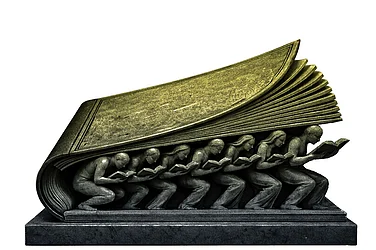The Supreme Court on December 13 will hear Bilkis Bano’s petition, challenging the premature release of the 11 individuals who had been convicted and sentenced to life imprisonment for gangraping her and murdering her family during the 2002 Gujarat riots.
Bano is also sought a review petition of SC’s May 2022 order that the Gujarat government could decide on the convicts’ remission plea, despite the fact that they were tried in Maharashtra. The writ petition challenging the remission is listed for Tuesday. The matter is listed before a bench comprising Justices Ajay Rastogi and Bela M. Trivedi as item number 38. The review petition will be taken up on Monday.
The development comes more than a week after Bano, represented by advocate Shobha Gupta, had approached the Supreme Court with a review petition in the case.
The bench, led by Justice Rastogi, is currently seized of a clutch of petitions filed against the August 10 order of the Gujarat government granting the benefit of remission to the 11 convicts under the 1992 policy. While Bano approached the court on Wednesday, these petitions were filed by former CPI MP Subhashini Ali, journalist Revati Laul, professor Roop Rekha Verma and TMC MP Mahua Moitra, among others.
Two days after the 11 were released, Bano released a statement through her lawyer, Gupta, saying the latest development has shaken her faith in justice. She urged the Gujarat government to “undo this harm” and give her back the “right to live without fear and in peace”.
The state government’s decision also sparked an outrage from civil society organisations, women rights groups, and leaders cutting across party lines.
The case
A special CBI court in Mumbai had sentenced the 11 convicts to life imprisonment in 2008. The sentence was later upheld by the Bombay High Court. After having spent over 15 years in jail, the convicts were released on Independence Day this year on account of “good behaviour” as part of the Gujarat government’s 1992 remission policy, which pertains to early release of convicts who have served at least 14 years on or after 18 December 1978.
The usage of the remission policy became controversial after Godhra BJP legislator C.K. Raulji referred to the convicts as “Brahmins” having “good sanskaar” (good values). The Gujarat government was further criticised for using an “older” remission policy over the more recent 2014 remission policy, under which rape and murder convicts are not eligible for remission.
The 1992 policy was considered after one of the 11 convicts, Radheshyam Bhagwandas Shah aka Lala Vakil, approached the apex court in March 2022 seeking a direction to the Gujarat government to consider early release. Although the Gujarat government told the apex court that his application for early release should be filed before the Maharashtra government because the trial had concluded in that state, the apex court bench that comprised Ajay Rastogi and Vikram Nath ruled otherwise.


























